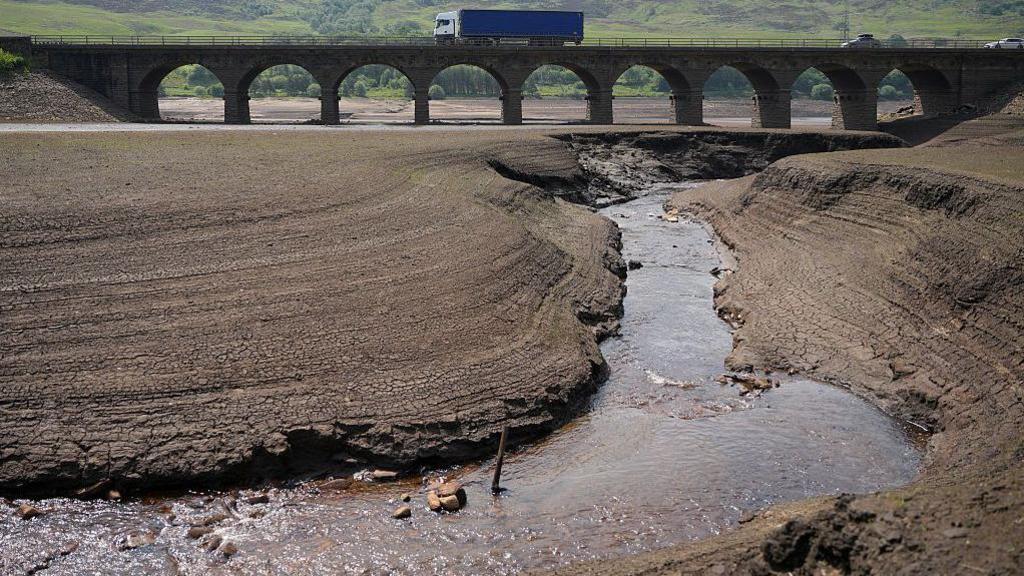Pea shortage fears over earliest harvest in years
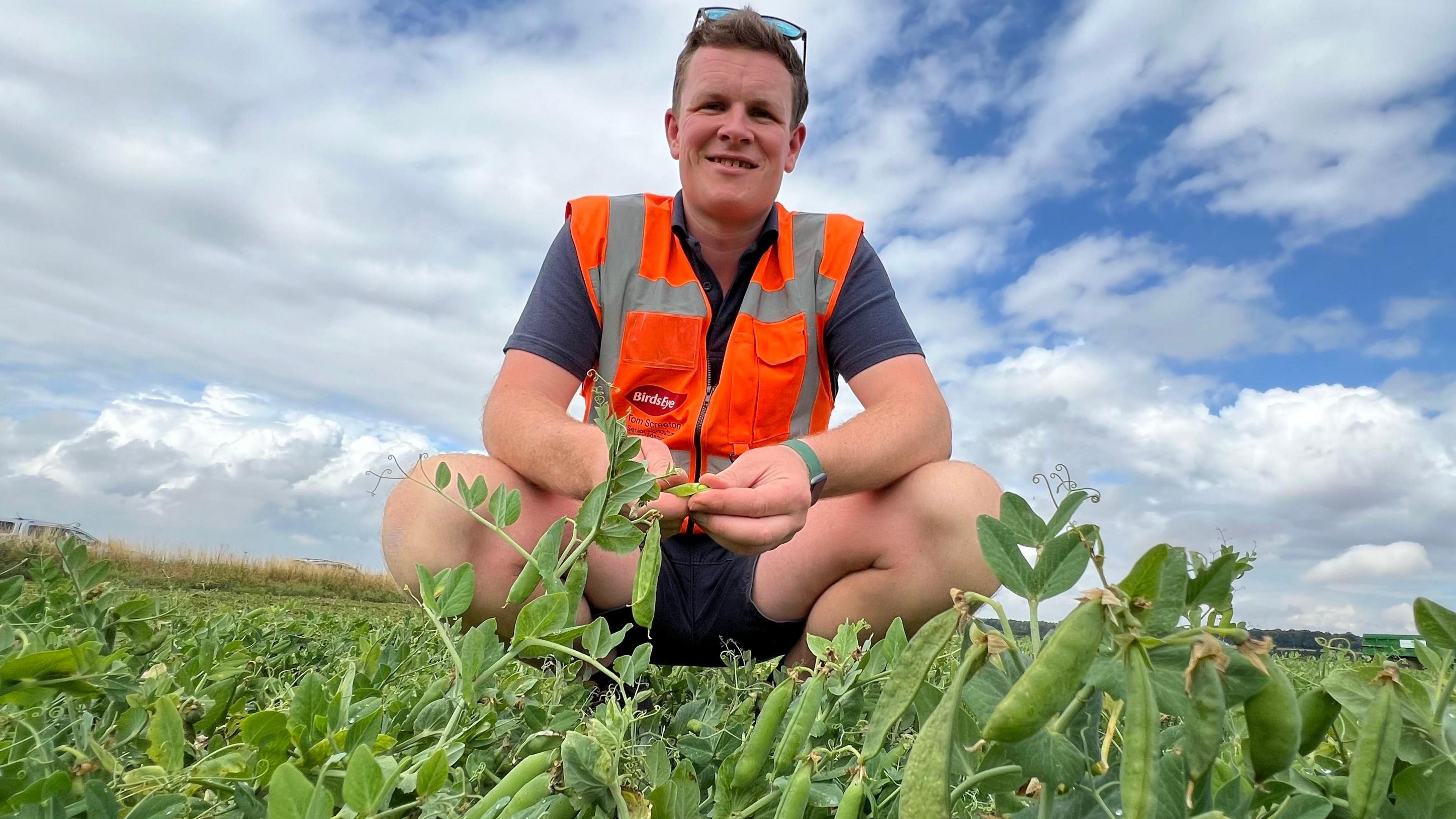
Tom Screeton from Birds Eye says this year's harvest has been "challenging" for pea farmers
- Published
Farmers fear there will be a shortage of British-grown peas in supermarket freezers after long spells of sunshine and dry weather resulted in the earliest harvest in 14 years.
According to the National Farmers' Union (NFU), vining pea growers across Lincolnshire, Norfolk, Suffolk and East Yorkshire have seen up to a 30% drop in the number of peas picked and processed this year.
One pea grower in Louth said he believed the drop in yield "could result in shortages".
According to the Met Office, England had its driest spring in more than 100 years, followed by its warmest June on record.
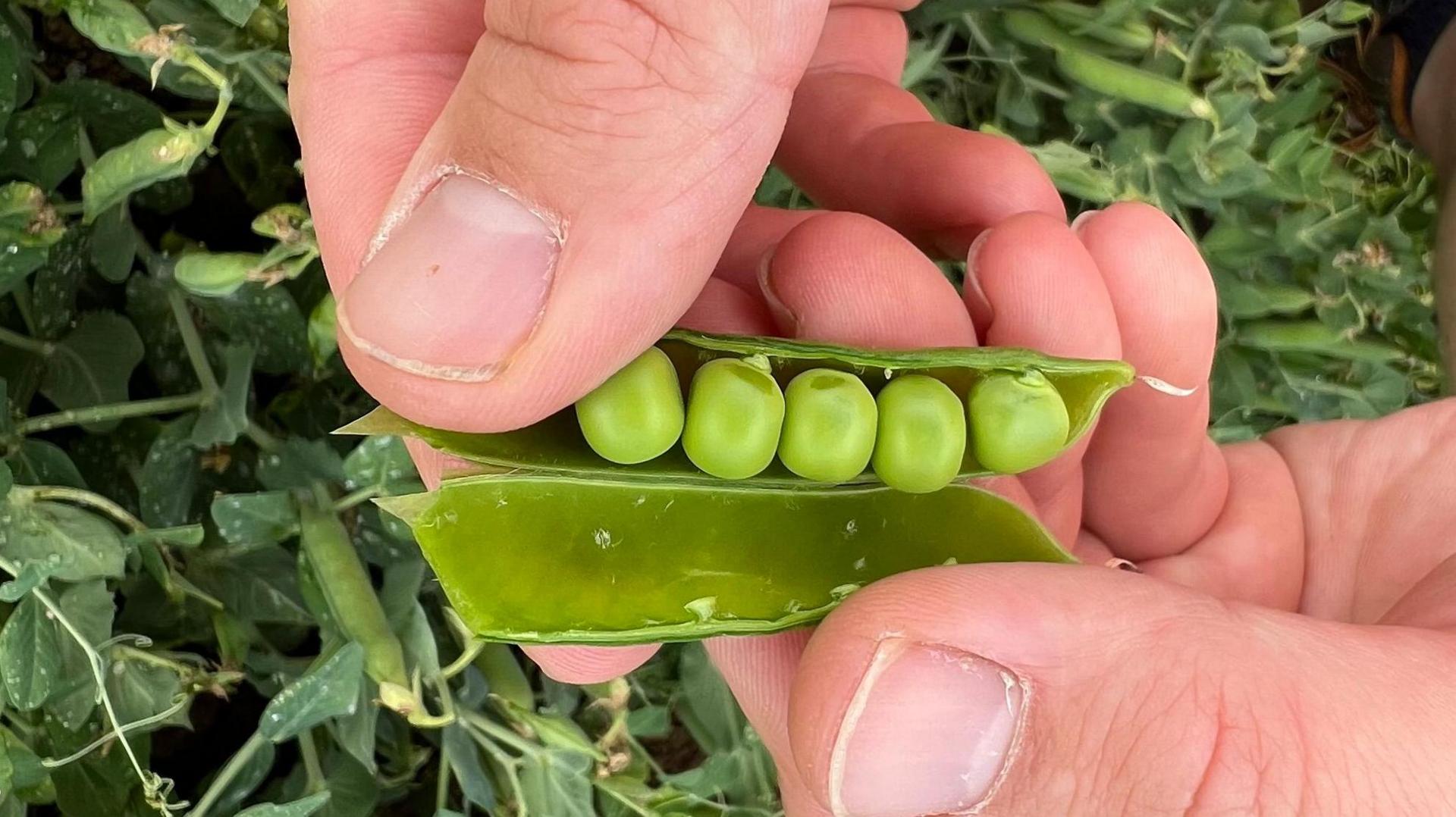
The peas have to be frozen within 250 minutes of being picked
Some areas experienced three heatwaves in quick succession in June and July, with the intense warmth drawing more moisture out of the soil.
Henry Moreton, a regional NFU chair in Lincolnshire, said crops had been "drying out and dying because of the extreme heat and the lack of moisture".
"The east coast is your primary vining pea land. It's all good, well drained land that peas like to grow on. But it's not looking good at the moment. I've never known the viners go out so early. I really haven't.
"The British peas will be in short supply this year but, unless the rain does something really amazing or unless there's a really good end to the season, we are going to look at shortages."
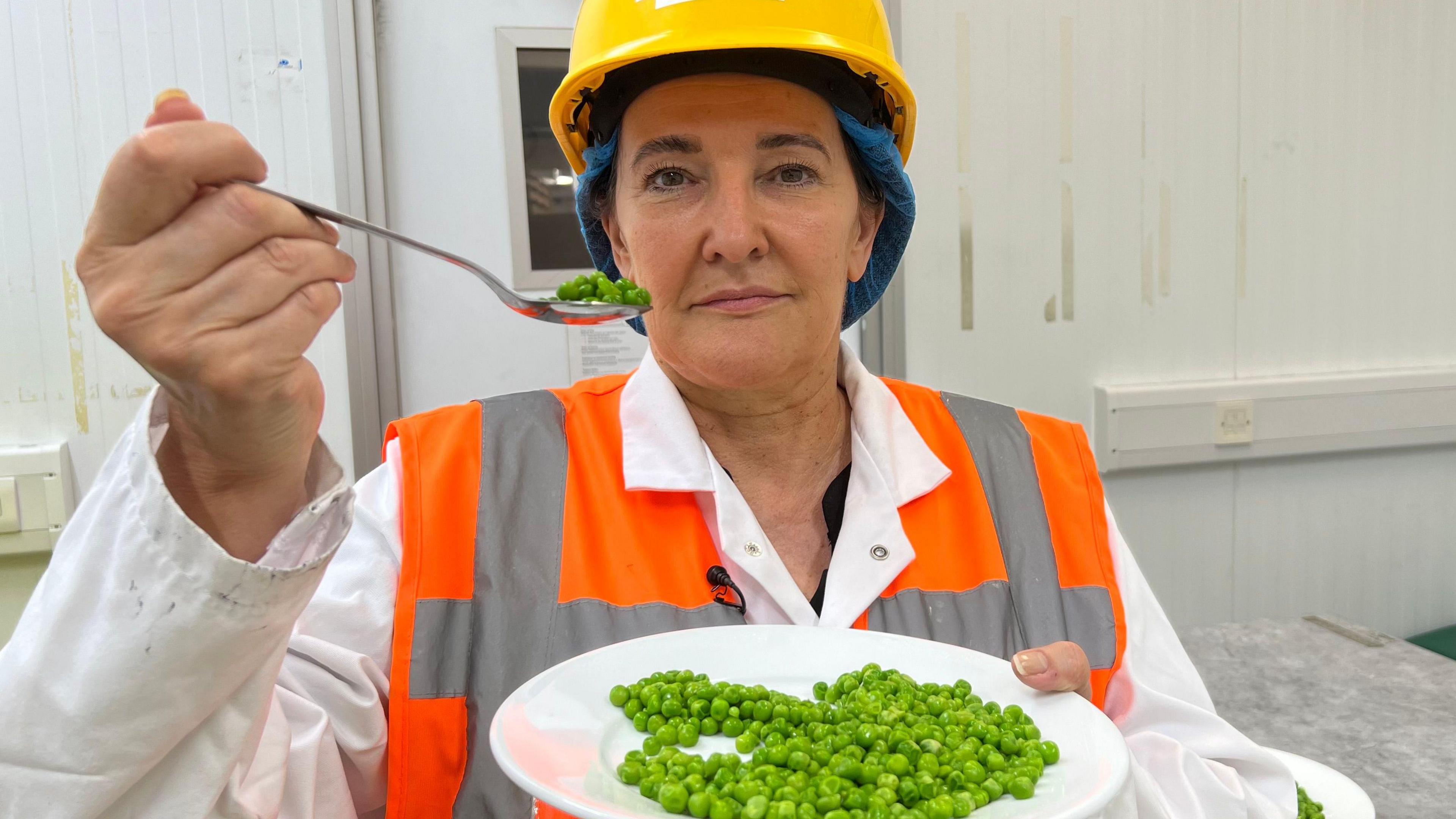
Pea taster Michelle Lawrie says the long spell of warm, dry weather means peas are sweeter than usual
Ian Watson is an operations manager for Stemgold Peas, from Louth, which works with 45 farms across Lincolnshire, growing the produce across 3,500 acres (1,416.4 hectares) of land.
They usually produce about 6,000 tonnes of peas a year, of which 5,000 are sold frozen while the remainder are tinned.
He said their harvesting period would normally begin in the middle of June and continue until the end of August, but this year the harvest started on 4 June "which is incredibly early".
"We've seen challenges right from the start of the season whereby soils have been very dry, very hard, very difficult to work," said Mr Watson.
"We're seeing very, very thin crops. They're not going to yield."
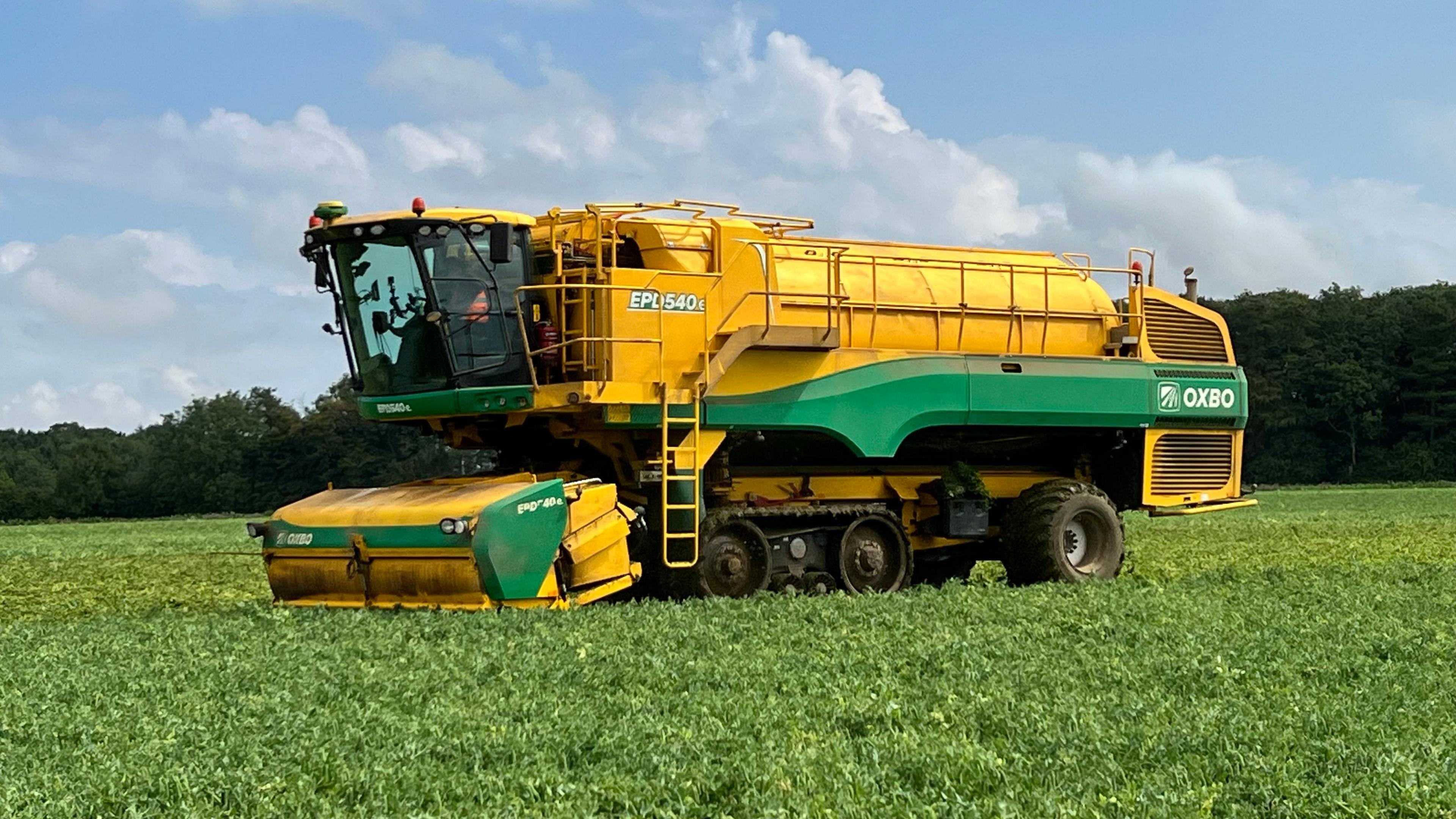
The harvest began early for many farmers across the UK
Mr Watson said the crops were so stressed by the weather, the number of peas in a pod had dropped by more than half, from up to 10 to "two big round peas and the rest have shrivelled up and died".
"In some instances, we're going to actually lose crops," he said.
"It's not just here. They're finding the same further south into Norfolk and east Suffolk. They're having an even worse time than we are."
Mr Watson said the recent rainfall was "too little, too late" and feared a "shortage of UK-grown peas".
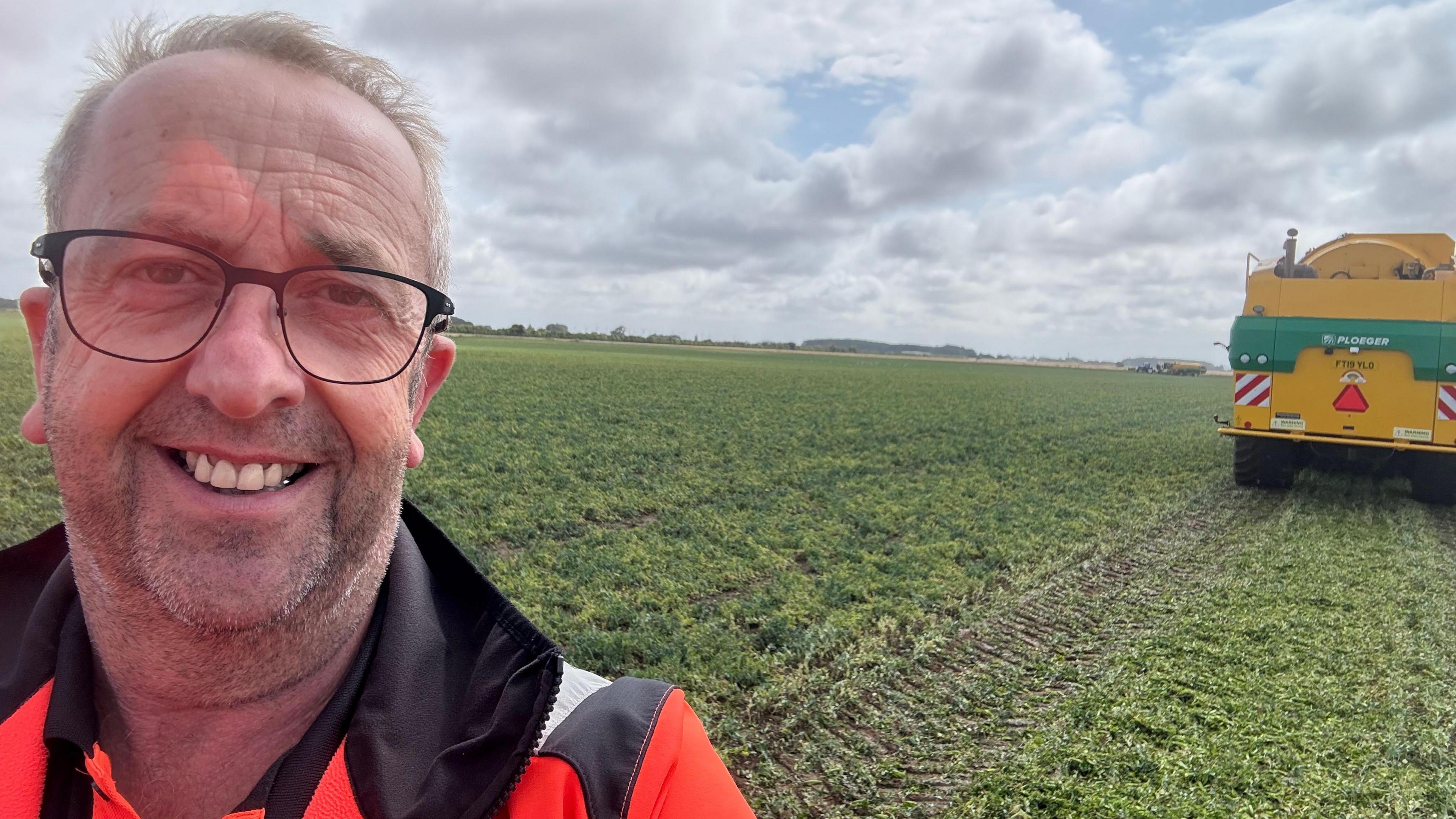
Ian Watson said the recent rainfall was "too little, too late for the peas"
Tom Screeton works as a senior agriculture fieldsman at Birds Eye looking after pea fields in East Yorkshire. The company works with more than 250 growers who usually harvest about 35,000 tonnes of peas a year in total.
He said the drought meant the peas were maturing at a faster rate than they were able to be harvested.
"We have a two-and-a-half-hour window to get these peas from being picked fresh in the field to being frozen at the end of the line in the factory. That process involves the harvesting, then haulage into the factory from up to 40 miles (64km) away, and then freezing when it gets to Hull.
"So the fact that whole process has moved so much more quickly has been quite a challenge."
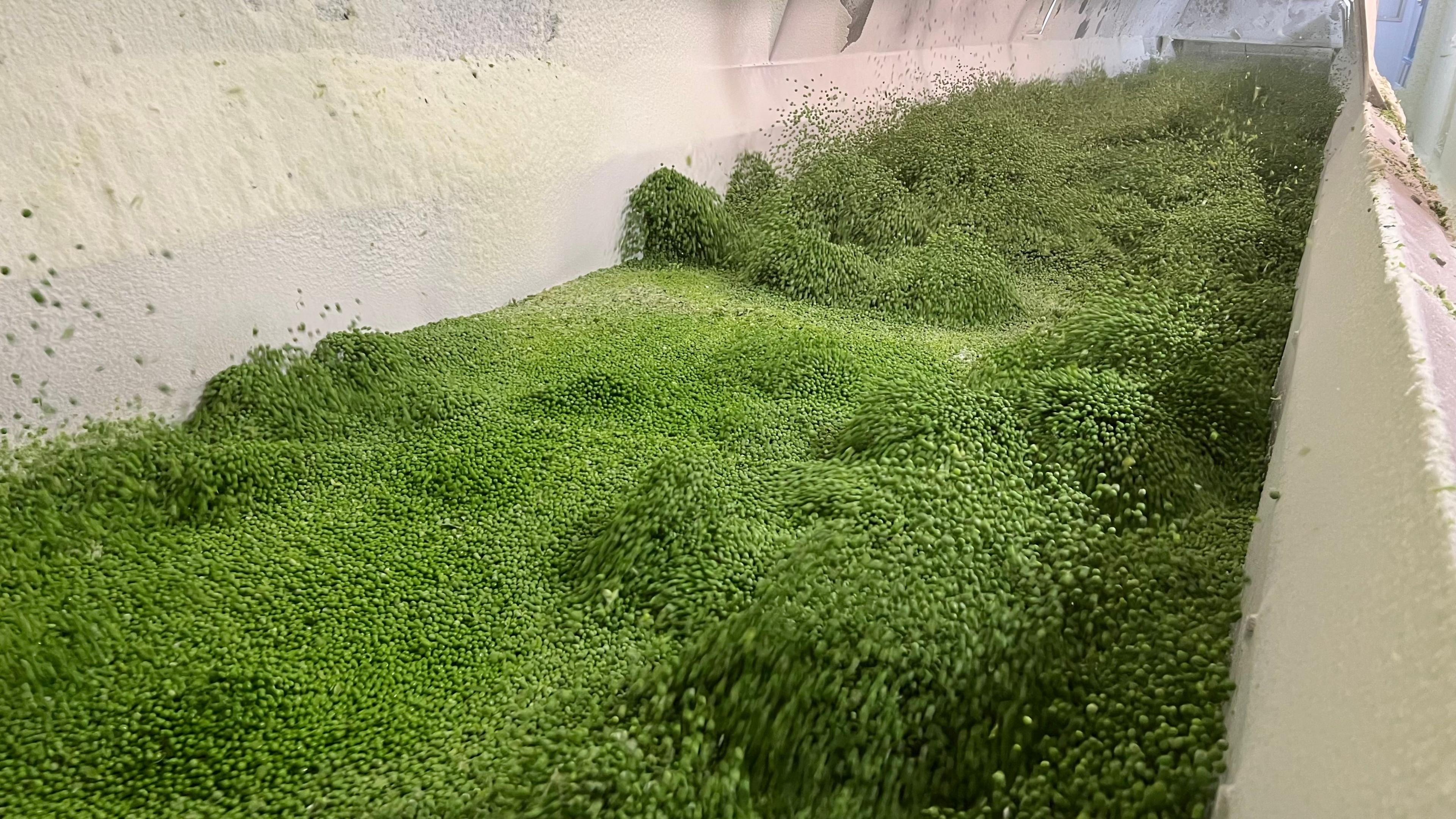
Birds Eye freeze their peas in a factory in Hull at -18C
Michelle Lawrie is a quality manager at Birds Eye, checking the condition of the harvested produce. A pea taster, she samples about 32 plates of peas on a daily basis during the season.
"The sweetness depends on the weather. This year in particular we've had a lot of sun so the peas are very, very sweet this year - exceptionally so."
Mr Screeton said the firm was looking at ways to mitigate challenges brought on by the fluctuating extreme weather. Last year, the wet spring meant farmers struggled to plant crops in time and resulted in a longer harvest with peas not maturing.
"I think going forward we can work on building more robust varieties as part of our breeding programme with more drought tolerant and stress resistant varieties.
"That's an ongoing process, but fundamentally with mother nature we're at the mercy of the elements and we just have to manage it as best we can."
Listen to highlights from Hull and East Yorkshire and Lincolnshire on BBC Sounds, watch the latest episode of Look North or tell us about a story you think we should be covering here, external.
Download the BBC News app from the App Store, external for iPhone and iPad or Google Play, external for Android devices
Related topics
- Published14 July

- Published6 July
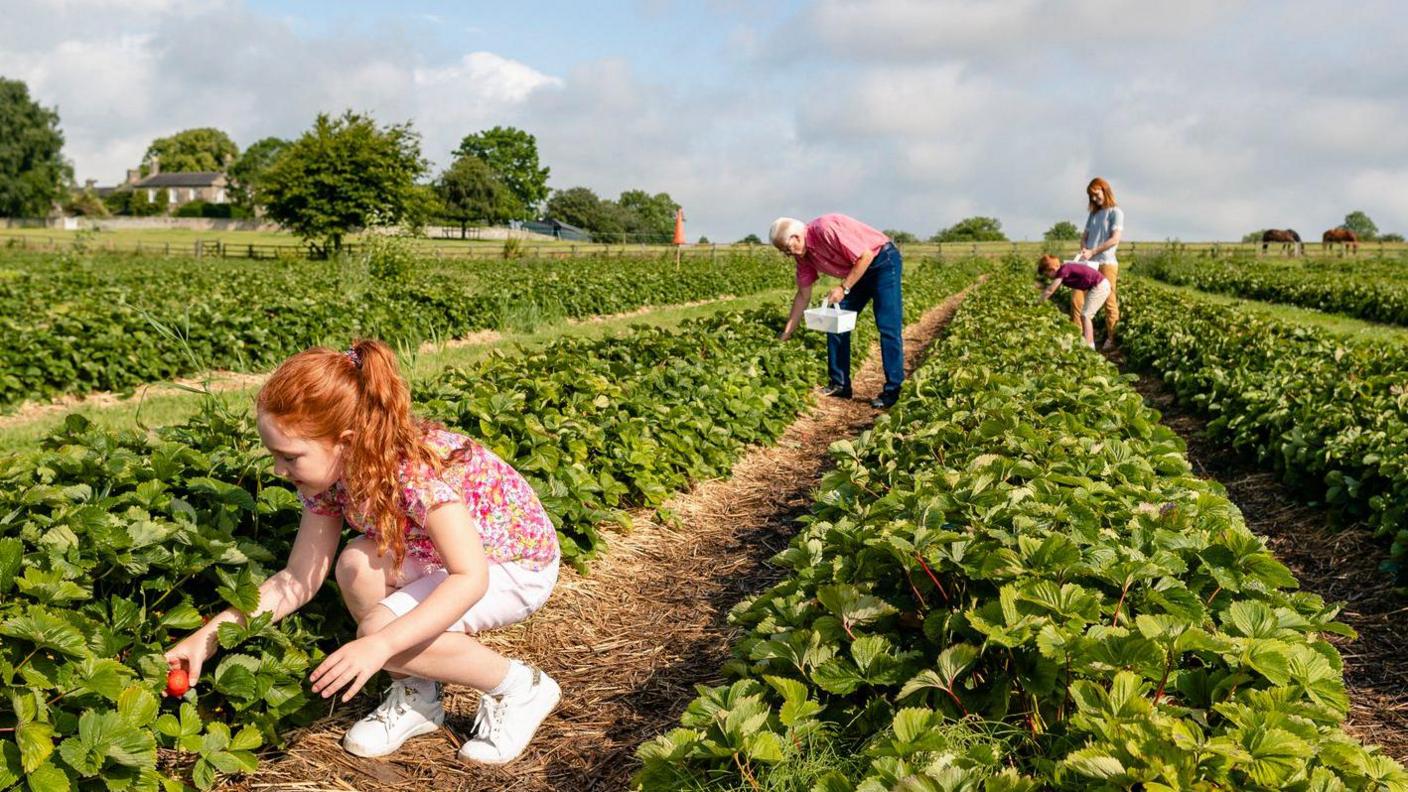
- Published16 June
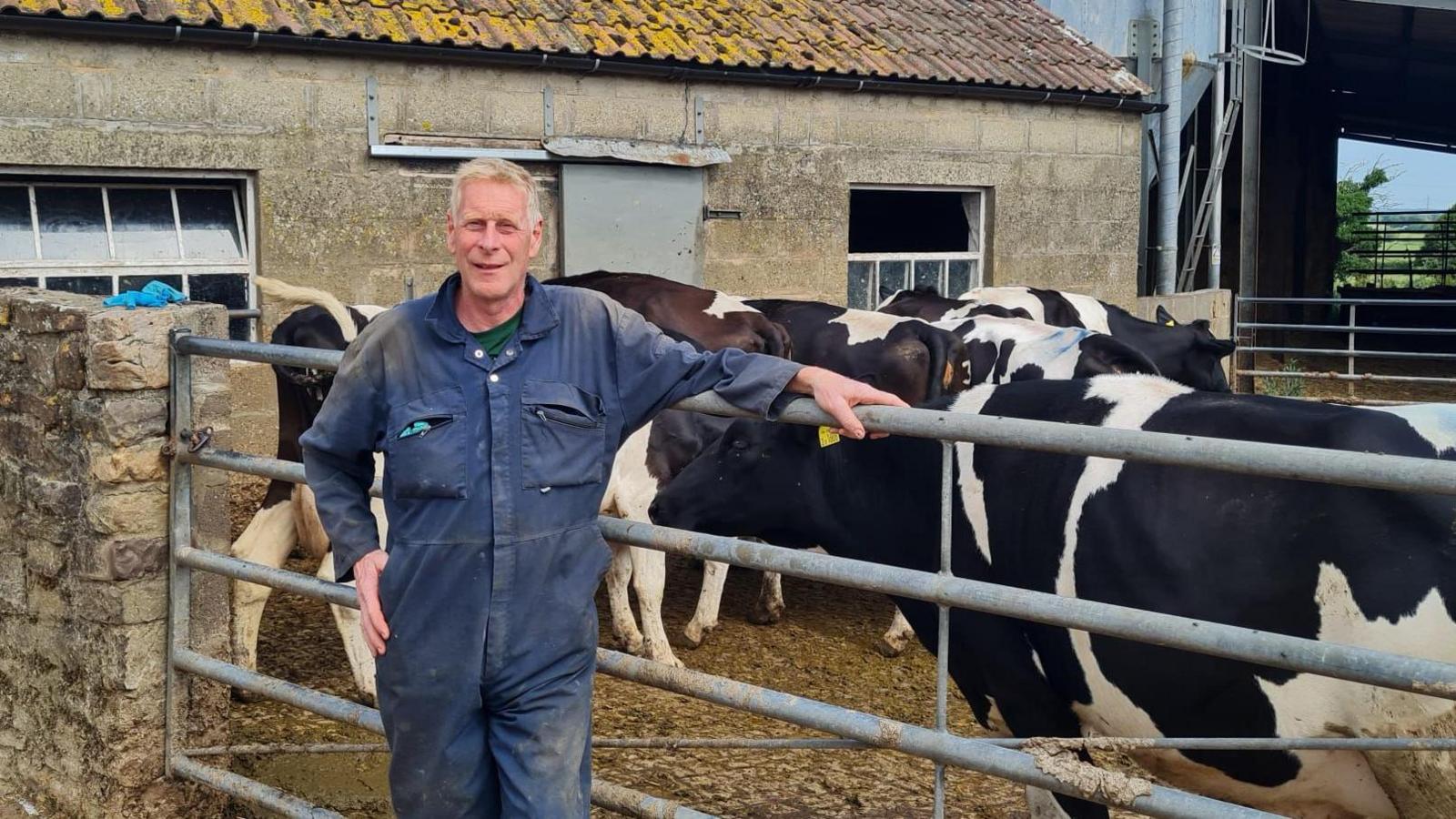
- Published7 April
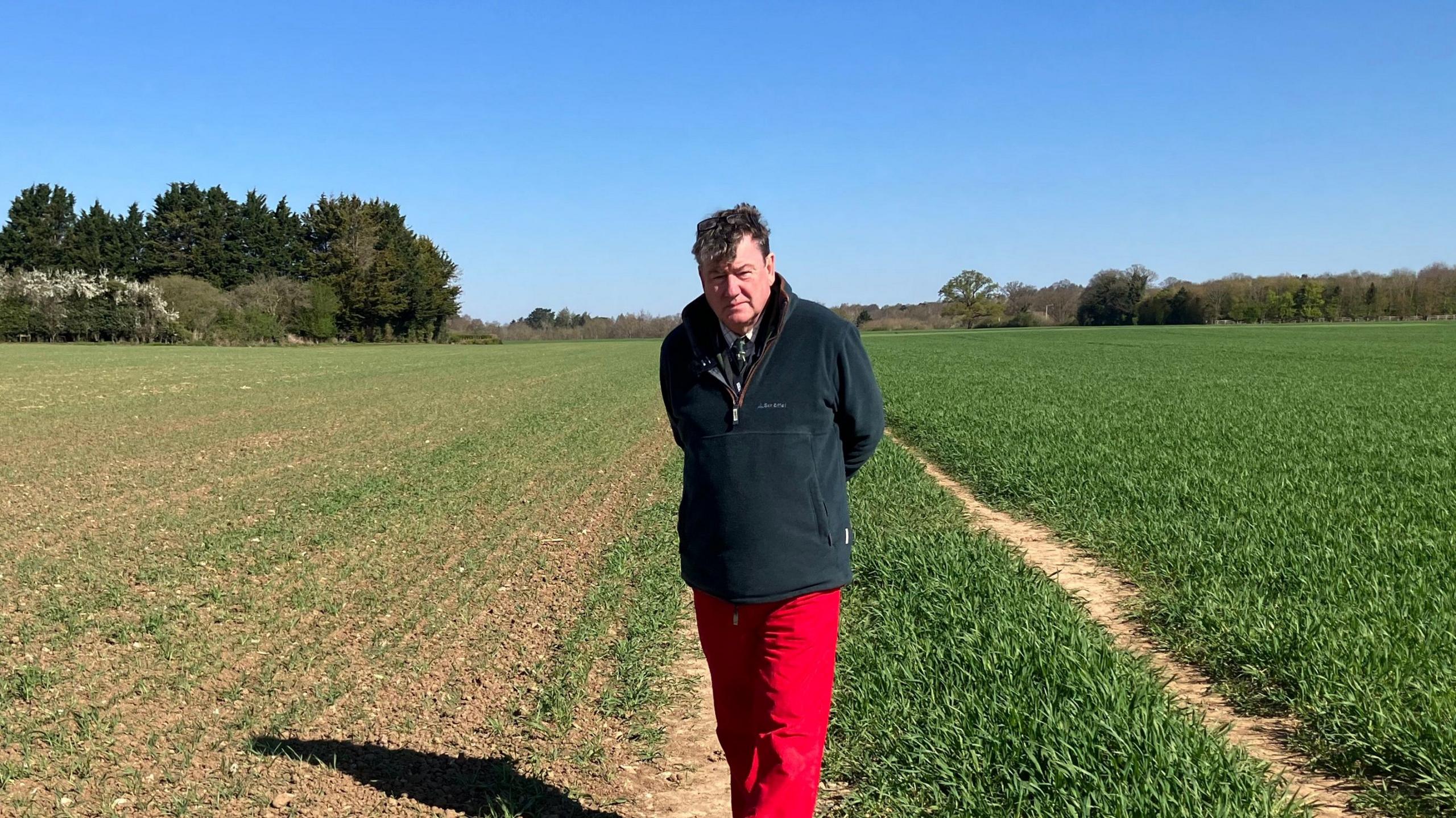
- Published22 June 2011
